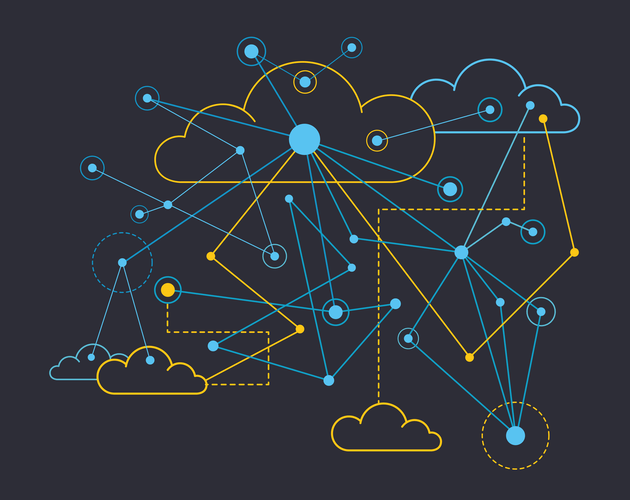By steadfastly committing to these aspects, organizations shield themselves from dangers and construct a foundation of trust with their stakeholders – a crucial asset in today’s digital age. In the digital age, knowledge ethics not solely guides how info is collected, stored, and used but additionally performs a crucial role in establishing belief and transparency between entities and individuals. Data ethics refers back to the moral rules and pointers that govern the collection, storage and analysis of information.

For example, employees who deal with buyer information should obtain extra in-depth training than those that don’t. All participants must be at least 18 years of age, proficient in English, and dedicated to studying and fascinating with fellow participants all through this system. To shield individuals’ privateness, ensure you’re storing information in a secure database so it doesn’t end up within the wrong palms. Data safety strategies that help shield privacy include dual-authentication password protection and file encryption.
A well-designed framework helps build belief with stakeholders, mitigates dangers, and ensures that data is utilized in a responsible manner. With the growing importance of knowledge in enterprise decision-making, organizations that prioritize information ethics shall be higher outfitted to thrive in the lengthy run. A data governance plan outlines how a company will handle its information belongings and ensure that they’re used appropriately and in accordance with ethical and authorized requirements. This plan should align with the moral ideas recognized in the earlier step, and may embrace pointers on tips on how to mitigate the risks identified in the threat evaluation. Gauging your employee’s comfort zones regarding using their knowledge is a vital step to take. HR leadership teams should be champions of employee information ethics and work with their employees to plot a set of rules that construct trust within the company’s information usage practices.
Leaders should come collectively to create an information utilization framework that reflects a shared vision and mission for the company’s use of information. Not all employees will have the same stage of duty when it comes to handling information. Therefore, it’s essential to offer role-based training that’s tailor-made to the particular needs of each worker.
Study Essential Information Expertise And Kickstart A Lucrative Career
Once you’ve a data utilization framework, enter, and feedback from your staff, you can create a data ethics code. As soon as that is totally developed, it’s essential to communicate it clearly to all staff. For example, a enterprise might determine that a core precept for information utilization is simply to use information if it is instantly linked to improving the working lives of its workers. This knowledge utilization framework could be revisited and revised accordingly because the business grows and priorities and applied sciences change. This helps ensure that knowledge is ethically and effectively used and helps the overall organizational technique. The first step to knowledge ethics is to develop a company knowledge usage framework for employees.
Implementing this framework will not only create a robust foundation of trust with these from whom data is collected however may even ensure compliance with many rising knowledge protection rules worldwide. Democratic information processing relies on an consciousness of the societal energy relations that data methods sustain, reproduce or create. Paying consideration to weak folks also involves working actively to scale back bias in the growth of self-learning algorithms.
Collection #
By 2025, people and corporations around the world will produce an estimated 463 exabytes of knowledge each day,1Jeff Desjardins, “How a lot data is generated every day? Compared with lower than three exabytes a decade in the past.2IBM Research Blog, “Dimitri Kanevsky translating big knowledge,” weblog entry by IBM Research Editorial Staff, March 5, 2013. Updates to your software and enrollment status might be proven in your account page.
- Withholding or mendacity about your company’s methods or intentions is deception and both illegal and unfair to your information subjects.
- Several governments worldwide have established laws that firms must comply with.
- In right now’s fast-paced digital world, understanding the moral dimensions of knowledge is extra crucial than ever.
- Join me as we set out on this journey and together we will traverse the ethical boundaries of knowledge.
Even after creating and putting an information utilization framework in place in your organization, there will still be gray areas to navigate. There is a hazard that HR teams and business leaders might assume that employees are pleased with how their knowledge is collected, used, and saved, however this is probably not the case. Data ethics refer and adhere to the ideas and values on which human rights and private knowledge safety laws are based mostly. To actively develop privacy-by-design and privacy-enhancing merchandise and infrastructures. To deal with somebody else’s private data as you want your own, or your children’s, treated.
Amazon’s Ai Recruitment Tool Bias #
Passive knowledge assortment through community evaluation and listening tools has increased according to the variety of remote employees as organizations try to remain in cost of their sprawling workforce. Plus, the increase of AI-based instruments in recruitment and other people analytics raises much ethical use of data more knowledge ethics and privacy issues. Over the past ten years, knowledge and analytics have turn into an integral part of Human Resources. While most organizations have started to improve the operational features of knowledge collection and management, data ethics continue to path behind.
It demands clear documentation of what information is shared, with whom, and under what circumstances. This includes providing customers with comprehensible phrases of service and privacy policies that define how their info is used. As the digital age continues to evolve, the function of information ethics in shaping a balanced, honest, and human-centric knowledge ecosystem will solely turn into extra crucial. While many information analytics tools exist at present, SQL is probably one of the most prolific “OG” tools.

Finally, the financial institution centered its efforts on the controls, governance, and instruments that may bring these insurance policies and standards to life. These included on-line studying modules, centralized controls on information downloads, and advanced-analytics fashions that helped to make sure compliance. Moreover, a data ethics framework is not just a set of insurance policies and procedures; it’s a culture that should be embraced all through the organization. This implies that employees at all ranges should perceive the significance of knowledge ethics and their function in sustaining it. Effective coaching applications may help staff perceive the practical implications of knowledge ethics, and regular monitoring and analysis can help ensure that the framework stays efficient over time.
Knowledge Ethics Rules
They imagine companies have an moral duty (as well as authorized obligations) to protect customers’ knowledge, defend in opposition to breaches, and be certain that personal data usually are not compromised. One effective technique is to form a cross-functional information ethics committee that has a mandate to develop, publish, and uphold the data threat framework. In our expertise, this committee is handiest when it’s formally integrated into the compliance organization. A group of dedicated information ethics specialists might help establish and produce noncompliant habits to the eye of the info ethics committee. Moreover, leaders can require the committee to weigh in on relevant knowledge usage cases—for instance, by defining when staff should search the committee’s steerage. Data ethics is essential for organizations as a end result of it helps to ensure that they function in a method that’s respectful, trustworthy, and accountable in terms of amassing, handling, and utilizing data.
By adhering to these principles, organizations can construct trust with their stakeholders, defend particular person rights, and contribute to a more accountable and ethical information ecosystem. Developing a data ethics framework is a vital step in ensuring that a corporation is handling data in an ethical and responsible method. However, it’s equally essential to monitor and consider the effectiveness of the framework over time. Below are some greatest practices hat organizations can use to monitor and consider their information ethics framework. As organizations more and more rely on data to drive business decisions, it’s important that staff perceive the ethical implications of handling information. As a subsequent step, organizations therefore want to make sure they’ve effective ways to transfer knowledge about information ethics.
Unfortunately, you can’t know for certain the impact your information analysis could have till it’s full. By considering this query beforehand, you can catch any potential occurrences of disparate impact. For instance, is it necessary to ask if the members wrestle with their psychological health? This data could possibly be sensitive, so amassing it when it’s pointless isn’t ethical. Strive to collect the minimal viable quantity of knowledge, so you’re taking as little as possible out of your topics whereas making a distinction.
It considers how information practices respect values like privateness, fairness, and transparency, in addition to the steadiness between individual rights and societal advantages. In addition to a public relations fiasco, such cases can result in customer loss and a dent within the financial bottom line. In today’s world of social media, such adverse information can unfold far and extensive and affect the company’s picture worldwide in no time.
Finally, organizations should set up a reporting mechanism that permits workers to report any information ethics violations or issues. Finally, it’s essential to create an setting the place workers really feel comfortable asking questions and offering feedback. This could be achieved by offering an open discussion board where workers can ask questions or share their ideas on the coaching program.

Data Governance offers a structured framework to manage knowledge via sturdy policies and procedures. Compliance with authorized standards and regulations further reinforces these efforts by holding organizations accountable to exterior ethical benchmarks. Sure, data ethics considerations have surfaced in numerous real-life conditions in the recent previous, highlighting the rising importance of moral considerations in information assortment, use, and sharing. Data ethics are here to stay and will only get more stringent as extra companies adopt knowledge analytics and AI as part of their processes. As data ethics rules turn out to be stricter, industries want consultants who can use data analytics to navigate these complexities. If that’s the career you’re aiming for, you have to acquire sound data of the intricacies of data analytics.
Further, the info leaked is weak to malicious utilization that will harm the individuals concerned and snowball into greater issues. Transparency entails lucidity and readability in information technology and gathering, knowledge type, storage practices, and information deletion and sharing. For instance, you should have an information ethics policy on your web site, and customers must have the ability to understand your actions. Several governments worldwide have established laws that firms should comply with.
We began to discover these questions by talking with about a dozen global enterprise leaders and knowledge ethics specialists. Through these conversations, we realized about some common information management traps that leaders and organizations can fall into, regardless of their greatest intentions. A information security plan outlines how a corporation will defend its knowledge from unauthorized entry, theft, or loss. The first step in assessing data-related dangers is to identify the data belongings that an organization holds. This includes all data sorts, including private knowledge, financial information, and proprietary information. Organizations should create a list of their knowledge assets, including where the info is saved, how it’s collected, who has entry to it, and the way it’s used.
Grow your business, transform and implement technologies based on artificial intelligence. https://www.globalcloudteam.com/ has a staff of experienced AI engineers.